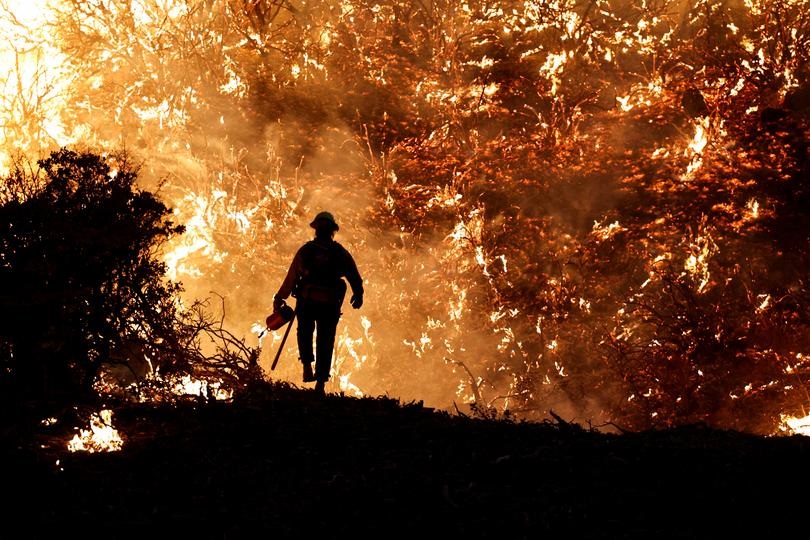11 Dec 2024

Tired Earth
By The Editorial Board

A firefighter works as the Caldor Fire burns in Grizzly Flats, California, on 22 August 2021. Photograph: Fred Greaves/Reuters
Wildfires produced a record amount of carbon emissions in parts of Siberia, the United States and Turkey this year, as climate change fanned unusually intense blazes, the European Union’s Copernicus Atmosphere Monitoring Service said on Monday.
Wildfires emitted 1.76bn tonnes of carbon globally in 2021, Copernicus said. That’s equivalent to more than double Germany’s annual CO2 emissions.
Some of the worst-hit hotspots recorded their highest wildfire emissions for any January-November period since Copernicus’ dataset began in 2003, including parts of Siberia’s Yakutia region, Turkey, Tunisia and the American west.
“We have seen extensive regions experience intense and prolonged wildfire activity. Drier and hotter regional conditions under a changing climate have increased the risk of flammability and fire risk of vegetation,” said senior Copernicus scientist Mark Parrington.
Globally, the wildfire emissions total wasn’t the highest since 2003, but Copernicus said such emissions were likely to increase as the impacts of climate change unfold.
Yakutia in northeastern Siberia produced its highest CO2 emissions from wildfires for any summer since 2003, while in western Siberia, a “huge number” of blazes churned out daily CO2 emissions far above the 2003-2021 average.
In North America, fires in Canada, California and the US Pacific north-west emitted about 83m tonnes of CO2, emitting huge smoke plumes that drifted across the Atlantic to reach Europe, Copernicus said.
California’s Dixie fire, which ravaged nearly a million acres, was the largest recorded fire in the state’s history.
In the Mediterranean, a hot and dry summer fanned intense blazes in countries including Greece and Turkey. Thousands of people in those countries were evacuated from their homes, and Copernicus said the region’s air quality deteriorated as the fires caused high levels of health-damaging particulate matter.
Source : theguardian.com
Comment